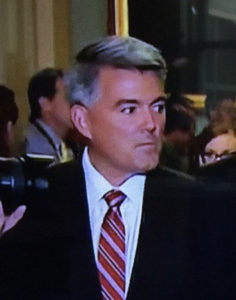
U.S. Senate
See Full Big Line
(D) J. Hickenlooper*
(R) Somebody
80%
20%

Governor
See Full Big Line
(D) Joe Neguse
(D) Phil Weiser
(D) Jena Griswold
60%
60%
40%↓

Att. General
See Full Big Line
(D) M. Dougherty
(D) Alexis King
(D) Brian Mason
40%
40%
30%

Sec. of State
See Full Big Line
(D) George Stern
(D) A. Gonzalez
(R) Sheri Davis
40%
40%
30%

State Treasurer
See Full Big Line
(D) Brianna Titone
(R) Kevin Grantham
(D) Jerry DiTullio
60%
30%
20%

CO-01 (Denver)
See Full Big Line
(D) Diana DeGette*
(R) Somebody
90%
2%

CO-02 (Boulder-ish)
See Full Big Line
(D) Joe Neguse*
(R) Somebody
90%
2%

CO-03 (West & Southern CO)
See Full Big Line
(R) Jeff Hurd*
(D) Somebody
80%
40%

CO-04 (Northeast-ish Colorado)
See Full Big Line
(R) Lauren Boebert*
(D) Somebody
90%
10%

CO-05 (Colorado Springs)
See Full Big Line
(R) Jeff Crank*
(D) Somebody
80%
20%

CO-06 (Aurora)
See Full Big Line
(D) Jason Crow*
(R) Somebody
90%
10%

CO-07 (Jefferson County)
See Full Big Line
(D) B. Pettersen*
(R) Somebody
90%
10%

CO-08 (Northern Colo.)
See Full Big Line
(R) Gabe Evans*
(D) Yadira Caraveo
(D) Joe Salazar
50%
40%
40%

State Senate Majority
See Full Big Line
DEMOCRATS
REPUBLICANS
80%
20%

State House Majority
See Full Big Line
DEMOCRATS
REPUBLICANS
95%
5%
 May 16, 2018 02:26 PM UTC
May 16, 2018 02:26 PM UTC 10 Comments
10 Comments
But, but, but, he's so bipartisan. Some hack "journalist" said so.
Michael is so dreamy…
And this has what to do with the topic at hand Ahab?
he showed his face!
And…..
I'm trying to recall any public policy with 91% on one side of it.
In 2015, Denver Business Journal said
So, more people want net neutrality than actually HAVE broadband subscriptions at home.
Yep, Cory is truly representing the people of Colorado — or at least, those in the cable industry who contribute to him.
Net Neutrality is an "iceberg" issue – The visible part seems wonky and obscure – Obama put some rules into effect to prohibit restrictive internet policies, and Trump wants to repeal these rules. So Whaaaa????
For educators, though, the invisible below-the-water part of net neutrality is the critical part – we are being pressured to do more with less, to close the tech knowledge gap, to recruit and give kids coding and other technical skills in STEM (Science, Technology, Engineering, and Math) fields. Yet, none of this is even halfway possible without an underlying network of free or low-cost internet sites:
*news sites like Newsela
*curriculum sites for reading, English, the sciences like Edgenuity
*class and assignment delivery sites like Google Classroom and Google docs
*in higher education, every university relies on online delivery of coursework.
*the ever-increasing online testing mania – this year alone, even in my little corner of northeast Colorado, kids took 4 separate freaking standardized tests, all of which were delivered online. Paper and pencil tests are mostly bygones, unless they have extensive fees attached to pay a battalion of paper and pencil graders – the SAT is still a paper test.
So if internet providers can start charging more for certain bandwidths or channels, it will quickly leave the vast majority of schools dependent on the charity of Big Cable. Centurylink, for example, is going to be subsidized by taxpayers to provide more bandwidth to the eastern plains – but their track record is that they keep the taxpayer funds, and pass along extra costs to consumers, increasing their profits.
Without net neutrality rules, a whole generation of students across the nation will be vulnerable to the machinations of whatever profit scheme cable providers can cook up.
Thank you for the post. I gained some understanding how the net facilitates learning.
Thank you.
Great post, mama.